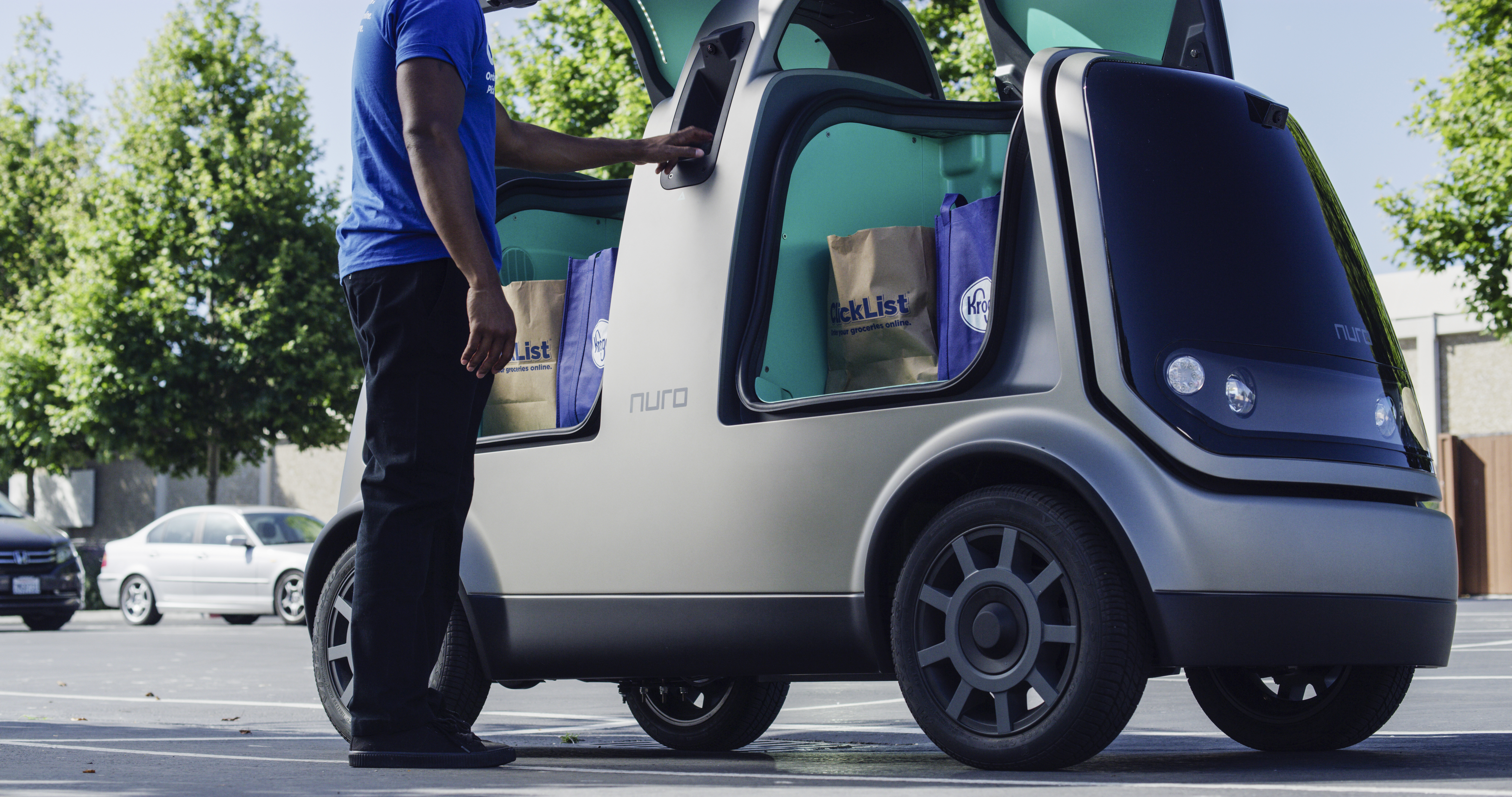Nuro, an autonomous vehicle startup focused on local deliveries, has partnered with 135-year-old grocery retailer Kroger to offer same-day deliveries. The two have yet to announce which market this will be live in, but the plan is to launch the several-month-long pilot this fall.
Nuro’s intent is to use its self-driving technology in the last mile for the delivery of local goods and services. That could be things like groceries, dry cleaning, an item you left at a friends house or really anything within city limits that can fit inside one of Nuro’s vehicles. Nuro has two compartments that can fit up to six grocery bags each.
When it came to going to market, Nuro CEO Dave Ferguson told me groceries were most exciting to him. And Kroger particularly stood out because of its smart shelf technology and partnership Ocado around automated fulfillment centers.
“With the pilot, we’re excited about getting more experience interacting with real customers and understanding exactly what they want,” Ferguson said. “The things they love about it, the things they don’t love as much. As an organization for us, it’s also very valuable for us to have to exercise our operational muscle.”
Throughout the pilot program, Nuro will be looking to see how accurate its estimated delivery times are, how the public reacts to the vehicles and how regular, basic cars interact with self-driving ones.

The pilot will be live in just one market, but Kroger has 2,800 stores nationwide so Nuro sees the partnership as an opportunity to reach the vast majority of America. Kroger already offers same-day delivery to 75 percent of its customers. With Nuro on board, the idea is to deploy the self-driving cars in areas where Kroger has yet to offer delivery services.
“We want to be available to every single customer of ours,” Kroger Chief Digital Officer Yael Cosset told TechCrunch.
On the customer side, the experience will surely be different from what they’re used to. Currently, Kroger customers expect the grocery delivery drivers to bring their items to their front door. With Nuro’s vehicles, they’ll only go as far as curbside.
“This is an area where we’re going to learn a lot from the pilot,” Cosset said. “We have theories and assumptions about high density and low density and we want to see how that plays out.”
Cosset went on to describe how he doesn’t see the current model for delivery and autonomous vehicle-powered delivery as mutually exclusive.
“We believe they’re complimentary,” Cosset said. “We may realize the optimal time to use autonomous vehicles is between 10 – 11 in the morning and the rest of the day have a fully-staffed model.”
Down the road, Nuro will continue looking at additional partners for its local delivery ambitions. Although Nuro is excited about the partnership with Kroger, it’s not an exclusive one.
“Given we’re a startup, we can’t afford to put our eggs in one basket,” Ferguson said. “But we do have the full intention of going big with Kroger and trying to do as much as we can together.”
Other potential partners for Nuro may include those like local dry cleaners, bakeries and florists.
“I think the only way realistically to do that is to provide a way for customers to access all of these local services through one spot,” Ferguson said. “That way, we’ll be able to collectively provide this local community delivery service and have some way to get all these local businesses within the same experience.”
from TechCrunch https://ift.tt/2Kv6tCc
via IFTTT
Comments
Post a Comment